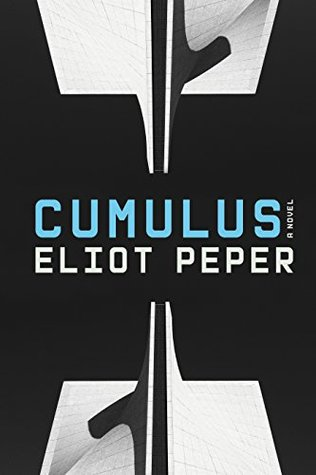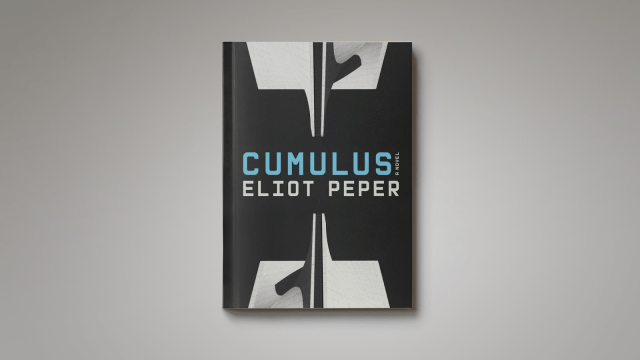The rise of Silicon Valley has been characterised by ever-increasing technological advances and extreme economic stratification. In Eliot Peper’s new novel, Cumulus, a conspiracy threatens to exploit those tensions, amidst a stark and terrifying story of what the future likely holds for us.
Set at some indeterminate point in the future, three characters find themselves caught in the middle of a conspiracy. There’s Huian Li, the founder of Cumulus — a Google-type company that has a stranglehold on services for anyone who can pay, Lilly Miyamoto, a photographer with a passion for analogue devices, and Graham Chandler, a black-ops agent navigating his way through Silicon Valley.
Peper’s book is an astute extrapolation of the present: it’s a work that focuses heavily on the growing disparity between the super-wealthy and the systemically-poor. In his future, these distinctions have become stratified with the help of companies such as Cumulus. The company has a whole bunch of services that convenience anyone who can pay: Fleet (Uber), Lancer (Upwork), Learner (a privatised school system), and others. Anyone who can’t afford their subscriptions are left scrambling for whatever they can find.
Meanwhile, the rich live in “Green Zones”, protected, gated communities with their own, private security and cameras. For someone like Lilly, her reputation lives and dies on the ratings she gets after shooting weddings for the ultra rich who are looking for a hip service like analogue photography. When she’s burned on a gig and gets into trouble in a Green Zone, she runs into Huian, who becomes an unexpected ally.

Huian is having her own difficulties. Cumulus is working on a difficult merger and to get everything across the finish line, her agent, Chandler, is sent out to twist arms and manipulate what he can – all while he carries out his own agenda, one that will threaten both Cumulus, and the people it services.
It’s in this environment which Peper has constructed an intriguing, fast-paced thriller that looks closely at what are arguably some of the most pressing issues facing the nation at the moment: a growing wealth gap, corrupt governments and an ever-increasing surveillance apparatus that threatens the country’s very character.
This is a book that reminded me quite a bit of William Gibson’s novel Pattern Recognition (and sequels), as well as Neill Blomkamp’s movie Elysium. It’s science fiction that feels like it’s just around the corner, and a future that’s absolutely believable if you’ve been paying any sort of attention to the news in the last decade.
That said, Cumulus is a book where the world is stronger than the story. I sucked up all the details about Li’s fictional megacompany, which acts as a conglomerated stand-in for the unicorn tech companies currently out there. It’s stranglehold on the intersection between technology and services is frightening, especially when it works to manipulate information or take control of cars. We use technology as a convenience, but there’s a trade-off that doesn’t go unnoticed here.
The differences in lifestyle between the slums and the Green Zones fascinated me to no end, which is something we’ve seen in recent years with the increases in gated communities. When strangers enter the Green Zones, they’re tracked and monitored; anyone without a visitor’s pass will be tossed out after their online profiles are evaluated.
Chandler’s ability to operate in the open and to be absolutely ignored by Cumulus’s watchful eyes is another really interesting point because it goes to the heart of what this book is all about: the extreme reliance on technology estranges people from one another. Every character is manipulated into place in some fashion, and where that’s bad on a character level (Huian’s relationship with her partner being destroyed), it scales up into serious issues on a societal one (entire communities being estranged from one another).
These are systemic problems: the people at the bottom can’t rise out of their lives because of this technological stranglehold. While they’re stuck working for low wages in crappy jobs, the super wealthy have all the resources they could ever need to make sure that their lives stay right where they are.
Peper’s book is a bit weaker on its characters, and this is a novel that could have stood to be a bit longer, if only to flesh out and assign a bit more motivation to each of its central characters: While Huian and Lilly’s motivations are well-executed, Graham’s past and actions feels a bit more vague.
Cumulus is an intriguing novel that holds up a mirror to ourselves, and shows just how scary the world could be right around the corner. It’s a fun and fast read, but one that will likely stick with me for a while.
